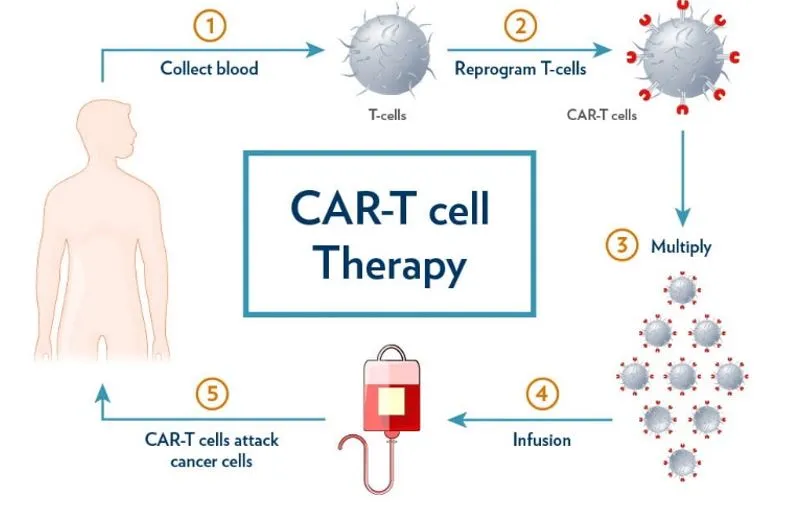

26th June 2025 (28 Topics)
Context
CAR T-cell therapy is gaining attention in India and globally as a revolutionary, personalised treatment for cancer, particularly blood cancers like leukaemia and lymphoma. Recent trials, including one funded by ICMR at CMC Vellore, show its potential to be developed and manufactured within Indian hospitals, improving both accessibility and affordability.
What is CAR T-cell Therapy?
- CAR T-cell therapy stands for Chimeric Antigen Receptor T-cell therapy—a form of immunotherapy that modifies a patient’s own immune cells to fight cancer.
- How it works:
- T-cells, a type of white blood cell, are collected from the patient’s blood (through a process called leukapheresis).
- In the lab, the T-cells are genetically modified to express CAR (Chimeric Antigen Receptors). These receptors help the T-cells recognize cancer cells.
- The modified cells—now called CAR T-cells—are multiplied and then infused back into the patient’s bloodstream.
- These engineered T-cells seek and destroy cancer cells with precision.
- Who can benefit from it? Currently, CAR T-cell therapy is approved for patients with Acute Lymphoblastic Leukaemia (ALL), Non-Hodgkin Lymphoma (NHL), Multiple Myeloma
- Side Effects to Be Aware Of
- Cytokine Release Syndrome (CRS): A strong immune response that can cause high fever, low blood pressure, or breathing issues.
- ICANS (Immune Effector Cell-associated Neurotoxicity Syndrome): Can lead to confusion, headaches, or coordination issues.



